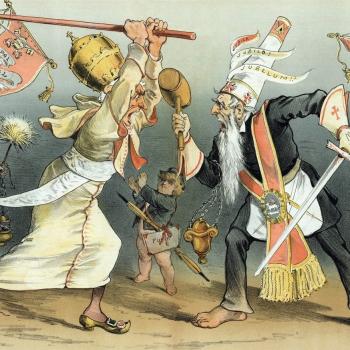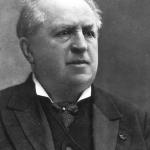All this week, the writers of Christ and Pop Culture unveil their 25 most loved things of 2013.
Previous #2: Vampire Weekend – Modern Vampires of the City
#1: Breaking Bad
I’m not sure of the next time our investment in the state of a man’s soul will become the focus of a television cultural phenomenon quite like what we saw with Breaking Bad’s final season. Each Sunday night over the course of the eight episode run was an Event. Fans and television critics were abuzz on social media and pop culture sites from early Sunday afternoon until Monday evening. We all wanted to know one thing: what would become of Walter “Heisenberg” White?
But the conversation often became a fierce debate because part of the reason we were so invested in Walt’s plight was because of how the nature of Gilligan’s story made his Mr. Chips-to-Scarface protagonist such an Everyman, implicating the rest of us in his fall.
One common criticism of the Breaking Bad series finale is that it was “too neat” in its conclusion. The criticism is related to the other common criticism levied against the show throughout its duration—that it was too unrealistic. Walt was never an Everyman in the sense that his predicament or how it unfolded was “realistic.” A middle-aged man gets cancer and decides to infiltrate the meth world? People scoffing at the “neatness” of the finale haven’t been paying attention to all that came before, including the show’s very premise. The show has always derived its narrative propulsion from Walt cooking up unlikely plans to overcome insurmountable odds. But what not everyone seems to have noticed is that with each triumph of the will and ego, Walt was descending further into badness. Walt’s imagination was flawed, in part, by his very definition of winning, and therefore the finale was the exact mess the show has always been.
Walt was meticulous and scientistic in devising his escape from the givenness of his existence, and Breaking Bad was precise in organizing the narrative of his downfall, but the show has never been about realism (according to our culture’s overly reductionist definition) so much as it’s been a Shakespearean tragedy of sorts.
What makes Walt an Everyman is the sense in which we can all imagine—we all know—what it is for pride and self-absorption to deteriorate our moral imagination and our relationships with others . . . to be cancerous to our humanity. It doesn’t matter that most (many?) of us won’t be involved in meth production, drug dealing, thievery, and murder.
Walt’s dark heart manifested itself the very moment, early in the show, when he couldn’t stand to accept charity to relieve his sickness. From that moment to when Walt sees his bloodied self-image in the meth equipment, Breaking Bad has been as recognizably human—“real”—as it gets.
If there’s any good that comes from the final episode—including any hope for Walt’s soul—then the central point of the show’s tragedy makes one thing certain: Walt didn’t attain it himself.















